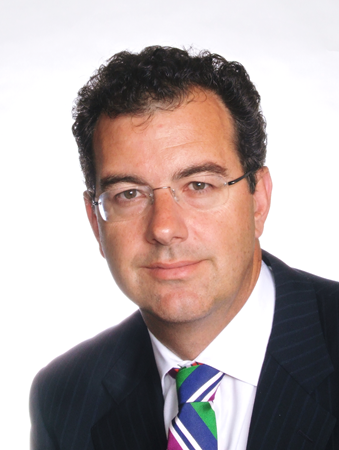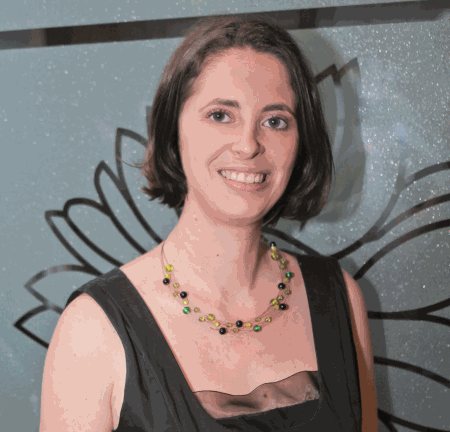Work and pleasure in the Pacific Islands
Despite the fact they are our neighbours, many of the Pacific Islands are a world away when it comes to language, culture and development. Claire Chaffey speaks to two lawyers making a difference in some of the world’s most exotic locations.
Despite the fact they are our neighbours, many of the Pacific Islands are a world away when it comes to language, culture and development. Claire Chaffey speaks to two lawyers making a difference in some of the world’s most exotic locations.
When Julie Miehe first began working as a lawyer in the French Pacific Island nation of New Caledonia, there were some things she didn’t yet understand about engaging in business and everyday life there.
On one of her first trips, Miehe nonchalantly revealed that she’d be wearing a bikini to the beach, and was subsequently asked a rather awkward question: “So you’re that kind of girl, then?”
During some of her initial business meetings, she felt compelled to fill the awkward silences that would often engulf business negotiations with the local people, but she soon learned that what is affectionately known as “The Pacific Silence” is a widespread cultural nuance, and that Pacific Islanders will talk when they’re ready, even if it means several minutes of silence.
For John Ridgway, landing a job in Vanuatu in the early 1990s provided him with the sea change he was seeking after having worked for a mid-tier firm in Sydney.
Although he didn’t even know where it was at first, once he got there he grew fond of the work and the culture, and has been practising there ever since.
Having started out at a local firm, he opened an office there for Clayton Utz in the mid-90s. Now, he is the managing partner of PLN Lawyers, which last year merged with Argyle Lawyers and became part of the International Legal Holdings group.
Like Miehe, the Pacific provides Ridgway with a fascinating, challenging and rewarding place to do business – and the opportunities there are greater than ever.
A taste for island life
For French-born and French/Australian-qualified Miehe, working in the Pacific through her Brisbane-based firm Océanie Lawyers makes perfect sense, especially given that many business transactions on which she works require translations and an explanation of the difference between the French civil code and the English common law.
“We have a lot of Australian clients that want to go into New Caledonia, French Polynesia and Wallis & Futuna, but it is so different from a legal point of view,” she says.
“There are also language and cultural barriers, so we help clients when they first want to move into those French territories by providing them with legal advice, but also showing them the differences between the Australian and French systems so that it is easier for them to work in that environment.”
But what started out as a convenient merging of her linguistic and legal skill-sets has morphed into a passion.
“The Pacific Islands get into your blood,” she says.
“I must admit that I do love my job. I work really long hours, like every single lawyer in the country, so it is great that I love it. It is a lot of hard work, but it is really rewarding as well.”
One of the most rewarding aspects, says Miehe, is contributing to the development of nations in which there is still much work to be done.
“There is so much to do and you feel like you are making a difference,” she says. “Even when you are doing commercial work, you can see the implications it has for the local people. If you are working on a big project, like a power plant or a mine, you can see that the local people have jobs and they can support their families. It’s extremely rewarding work, in that sense.”
Ridgway has also developed a passion for the Pacific and travels at least once a month to Papua New Guinea (PNG), Fiji, New Caledonia or the Solomon Islands. In fact, at any given time, at least one of PLN’s nine lawyers is somewhere in the Pacific Islands.
Like Miehe, Ridgway derives great satisfaction from seeing the difference Australian lawyers can make to the lives of the local people.
“You can be involved in an alternative energy and infrastructure project, which is going to significantly reduce reliance on imported petroleum products, or you can be involved in some pro-bono work over a long period of time, to try and sort out some local legislation so that it complies with international conventions,” he says.
“This can make a dramatic difference.”

Ridgway also gives the example of working with telecommunications company Digicel as being a rewarding experience.
“They changed peoples’ lives overnight because they made mobile phone services available to places and people that could not possibly have imagined it, in circumstances where it might have been a day’s walk to get to a phone,” he says.
“Now, they can have a solar-charged mobile phone that they can take to the top of a hill and use. It is nice to see really positive outcomes.”
John Ridgeway, PLN lawyers
Not all smooth sailing
Despite their exotic reputation, working in the Pacific Islands does present its challenges, especially when working in cities such as Port Moresby, which is deemed to be one of the world’s most dangerous places.
While neither Miehe nor Ridgway has ever experienced anything terrible there, they do realise that it’s not your average city.
“Security-wise, PNG is the worst place in the Pacific,” says Miehe.
“I have travelled quite a lot, so I don’t feel that unsafe, but I am careful. I don’t walk by myself in the city, I always travel with clients or people that I know … They take care of me and tell me where I shouldn’t go, but I don’t have bodyguards or a driver … You just have to be aware of your environment.”
Ridgway says that working in PNG is no more dangerous than working in other places around the Pacific, though he says those companies who do business there are often used to working in unsafe locales.
“Port Moresby is a challenge. You do need to have a security and business operations strategy to do business there,” he says.
“Everybody who is doing business there successfully will have security sorted. A lot of the companies that do business in PNG … have already done business in much more challenging environments, like Libya and Yemen, so they are across those issues. They know what they are doing.”
But according to Ridgway, the opportunities offered by PNG are well worth any hassles that may arise because of security issues.
“Fundamentally, the resources and other opportunities that PNG has to offer fully outweigh those [security] issues,” he says.
Moving on up
Without a doubt, exciting things are happening in the Pacific Islands. French companies accustomed to doing business solely in the French Pacific are venturing out of their comfort zones and looking at investing in PNG and the Solomon Islands, and a growing amount of significant projects are in the pipeline for these resources-rich nations.
For Miehe, the untouched Solomon Islands represent particularly significant growth opportunities over the next few years.
“It is a beautiful place and it is so untouched compared to the other islands,” she says.
“There is so much to be done. I think it has great potential. They have eight per cent growth every year, it is a lot safer than PNG, so it is an easier environment to work in – especially as a woman travelling around the Pacific – and there are so many projects coming in and many mining projects that should start in the next few years. It is one of the islands in the Pacific that has the most potential right now.”
Ridgway agrees.
“We do a lot of work in the Solomon Islands and we have a large number of key corporate clients operating there,” he says.
“Like PNG, it is a resource-rich place. It is, in relative terms, more stable than what it was, and the regional assistance mission to the Solomon Islands (RAMSI) presence there has provided a great safety-net to do business. There are definitely opportunities there.”
Both Miehe and Ridgway agree that the key to making the most of such opportunities is knowing the market and developing strong relationships “on the ground”.
“The people who work with us have street credibility in the places we do business,” says Ridgway.
“We also have good relationships with the governments and regulators. One of the key drivers for success is to have really good relationships with people on the ground there, and that helps you deal with any cultural nuances. You can’t deal with these places on a fly-in, fly-out basis.”
Love thy neighbour
Australia and Australian lawyers have long played an important role in the Pacific Islands, contributing to the development of fledgling or collapsed legal systems, providing judges to periodically sit on benches in troubled nations like Fiji, and contributing to the development and training of local lawyers through regular injections of funding and human resources.
Just last year, the South Pacific Lawyers Association – a professional organisation for lawyers to build expertise across the Pacific region – was launched, and the Federal Government announced $485,000 in assistance to help develop the legal profession in countries across the Pacific.
According to Ridgway, firms working in the region have a responsibility to “give back”, particularly when it comes to sharing expertise.
“Australians are important to the Pacific Islands in a number of contexts,” he says.

“These places have very poorly structured legal services and regulatory environments, so any assistance Australian firms can give to up-skilling and training is really important, and also to assist in regulatory reform. We put back into these places with law reporting and training. We do CLEs and education activities and all of those sorts of things.
“The Pacific has been very good to me and my business and the people who work with me, and we try to put a little bit back into it.”
Julie Miehe, Océanie Lawyers
For Miehe, another important aspect of her work – and a way to give back to the community – is to development strong relationships with local people and local service providers and, where possible, use local lawyers.
“When you first get into the Pacific market, you tend to meet and work with Australian lawyers, but there are definitely places, like the Solomon Islands and Vanuatu, where we are starting to use the local lawyers,” she says.
“There are some really good local lawyers there, and we should be using them, definitely.”





